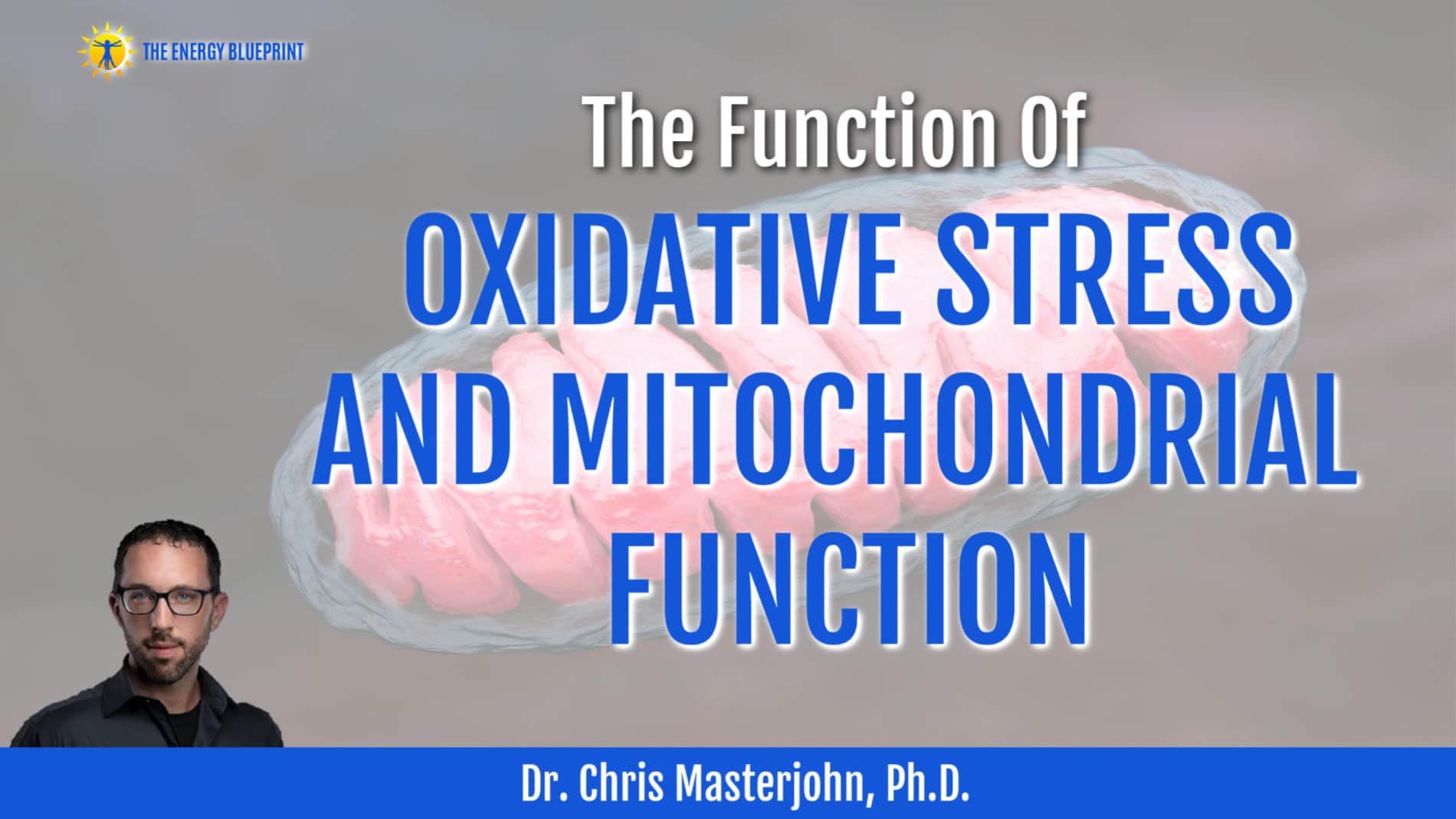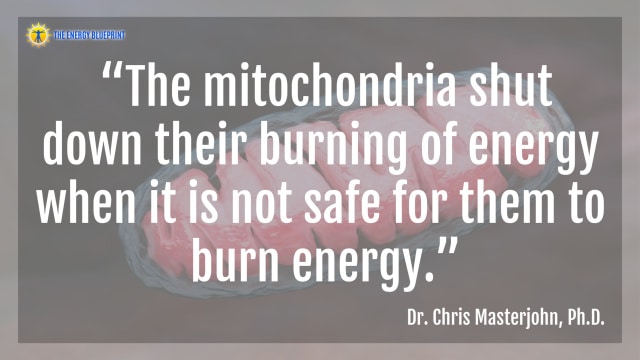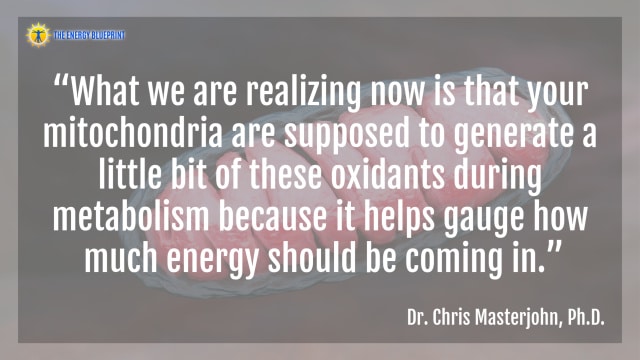 Dr. Chris Masterjohn has a Ph.D. in Nutritional Science and is widely regarded as one of the top nutritional biochemistry experts in the world.
Dr. Chris Masterjohn has a Ph.D. in Nutritional Science and is widely regarded as one of the top nutritional biochemistry experts in the world.
The roles of oxidants in the body
 For years, it has been believed that oxidants are bad for your health and that you need to supplement with antioxidants to mitigate the negative effects of oxidative stress. However, over the past 10 years, the scientific community has begun to appreciate that oxidants not only inflict damage but are normal, regulatory products of the metabolic process.
For years, it has been believed that oxidants are bad for your health and that you need to supplement with antioxidants to mitigate the negative effects of oxidative stress. However, over the past 10 years, the scientific community has begun to appreciate that oxidants not only inflict damage but are normal, regulatory products of the metabolic process.
The primary cause of oxidative stress
 Everyone produces oxidants, which are the cause of oxidative stress (the wear and tear on our tissues.) No matter how healthy you are, as you get older, you will accumulate more and more exposure to natural oxidants that you generate as a natural byproduct of metabolism.
Everyone produces oxidants, which are the cause of oxidative stress (the wear and tear on our tissues.) No matter how healthy you are, as you get older, you will accumulate more and more exposure to natural oxidants that you generate as a natural byproduct of metabolism.
Generation of these oxidants may be increased by imbalances in the metabolic system due to diseases such as diabetes. Exposure to any sort of toxin, whether it is cigarette smoke, BPA or anything else, will also accelerate oxidative stress.
Key Point: A normal metabolism generates oxidants which cause oxidative stress and will accumulate as you get older. However, if you suffer from metabolic disease or are exposed to toxins, oxidant generation is accelerated and exposure to oxidants increased.
Why the body generates oxidants

Over the past decade, the scientific community has come to appreciate that oxidants aren’t only causing damage, but that they also serve some regulatory purposes.
So, why does normal metabolism generate these oxidants?
Your mitochondria are turning a certain percentage of the fuel you burn into oxidants. These oxidants have a feedback loop which tells the mitochondria to either ramp up energy production or turn it off.
If your metabolism doesn’t work optimally and generates too many oxidants, you may start feeling unwell or fatigued as your mitochondria move into self-protection mode. The mitochondria may simply stop burning energy when they detect that there is too much oxidative stress going on.
Key Point: High levels of oxidative stress may cause the mitochondria to shut down, which may lead to fatigue and feelings of unwellness.
The positive health benefits of oxidants

There are two ways that oxidants can help regulate your body and even improve your health.
One is by helping the mitochondria assess energy needs. In a healthy individual, the oxidants work with the mitochondria to help them gauge how much energy they need to produce and only take on the burdens they can handle. As mentioned above, the energy shut down only occurs when levels of oxidative stress become too high.
Another is by helping your body adapt to change. When you exercise, you generate more oxidants which send signals to your body that it needs to make more mitochondria in order to increase the internal antioxidant protection and burn off energy cleanly. These processes begin when you rest and re-nourish after exercise.
Basically, if your body generates more oxidants as a result of exercise, it is to burn energy more efficiently. These oxidants signal that exercise will help you become fit.
Key Point: In a metabolically healthy individual, oxidants signal the mitochondria to produce the energy needed for you to feel good. Furthermore, the acute increase in oxidants you get from exercise sends signals to the body that it should increase fitness levels.
Summary
For many years, it was believed that oxidants had no beneficial roles or function in the body, and that they were simply toxic byproducts that damage our cells. Over the past decade, researchers have found that this is inaccurate and that the oxidants also serve as regulators in metabolism and energy output. They are generated to help the mitochondria gauge how much energy the body needs and regulate how much energy they need to exert.
Oxidants are not inherently good or bad but simply serve a purpose in regulating metabolism, energy burning, and energy output. If you have too much oxidative stress (caused by a chronic overproduction of oxidants), they are bad for you and cause your mitochondria to decrease energy output. On the other hand, if you lead a healthy life and





